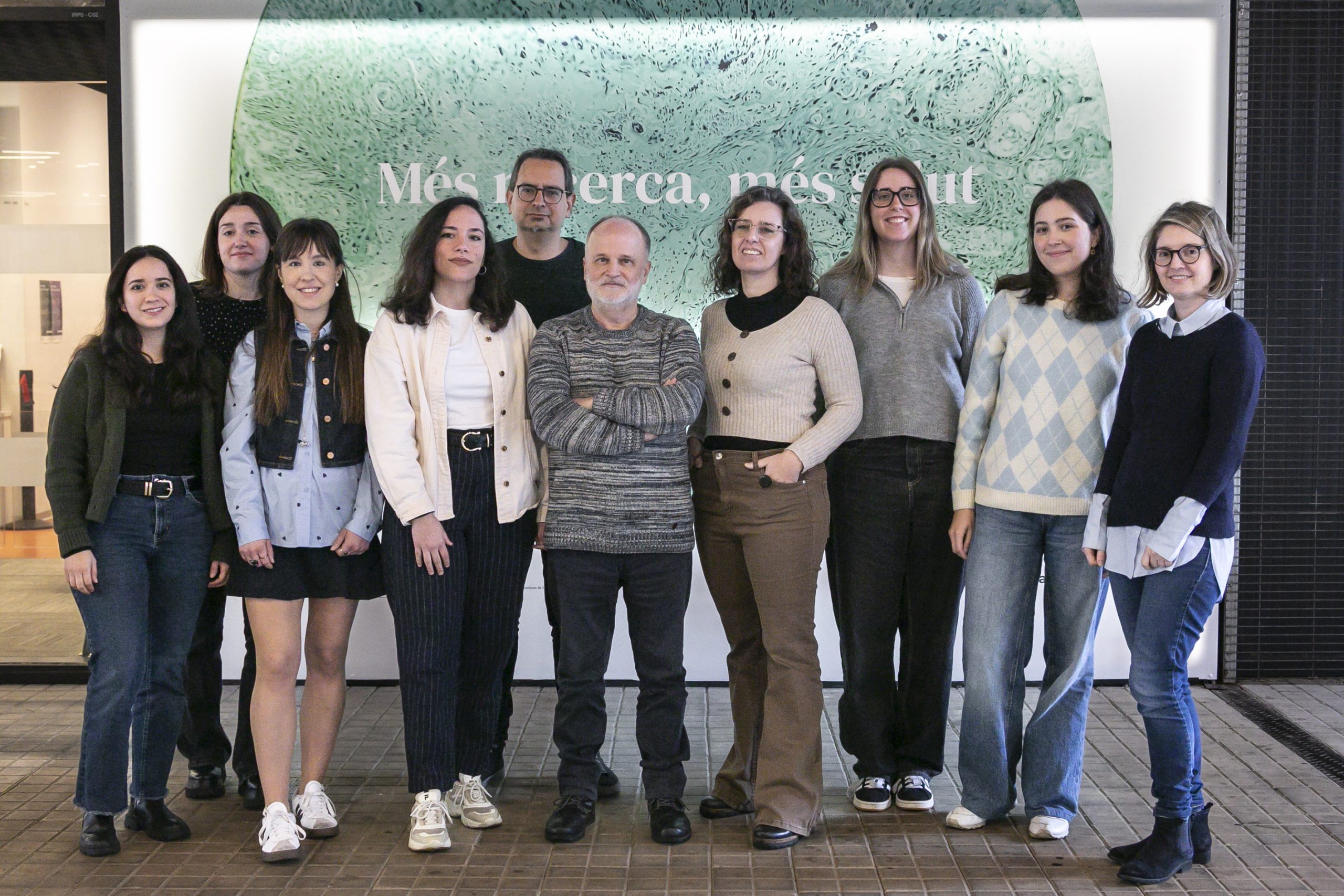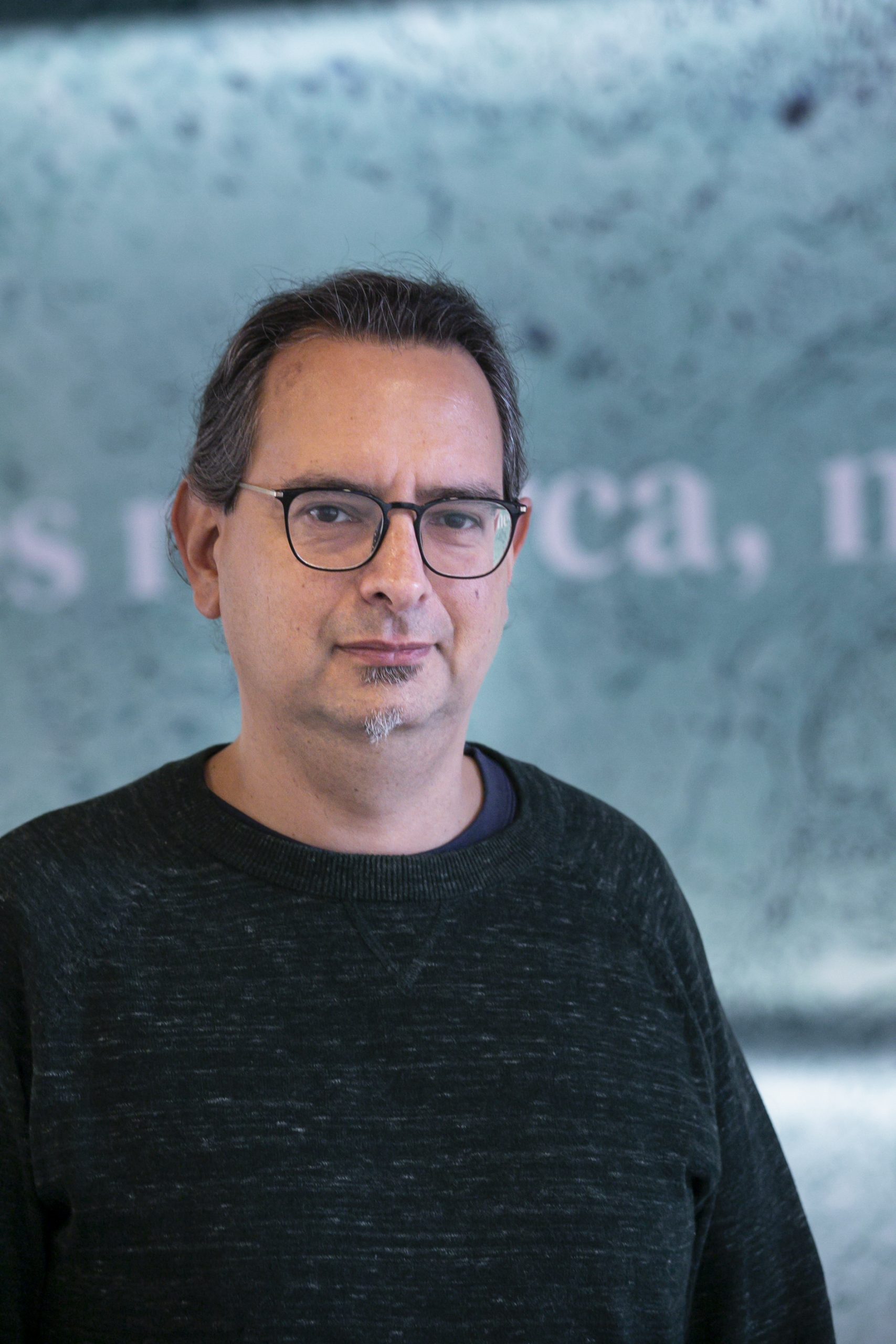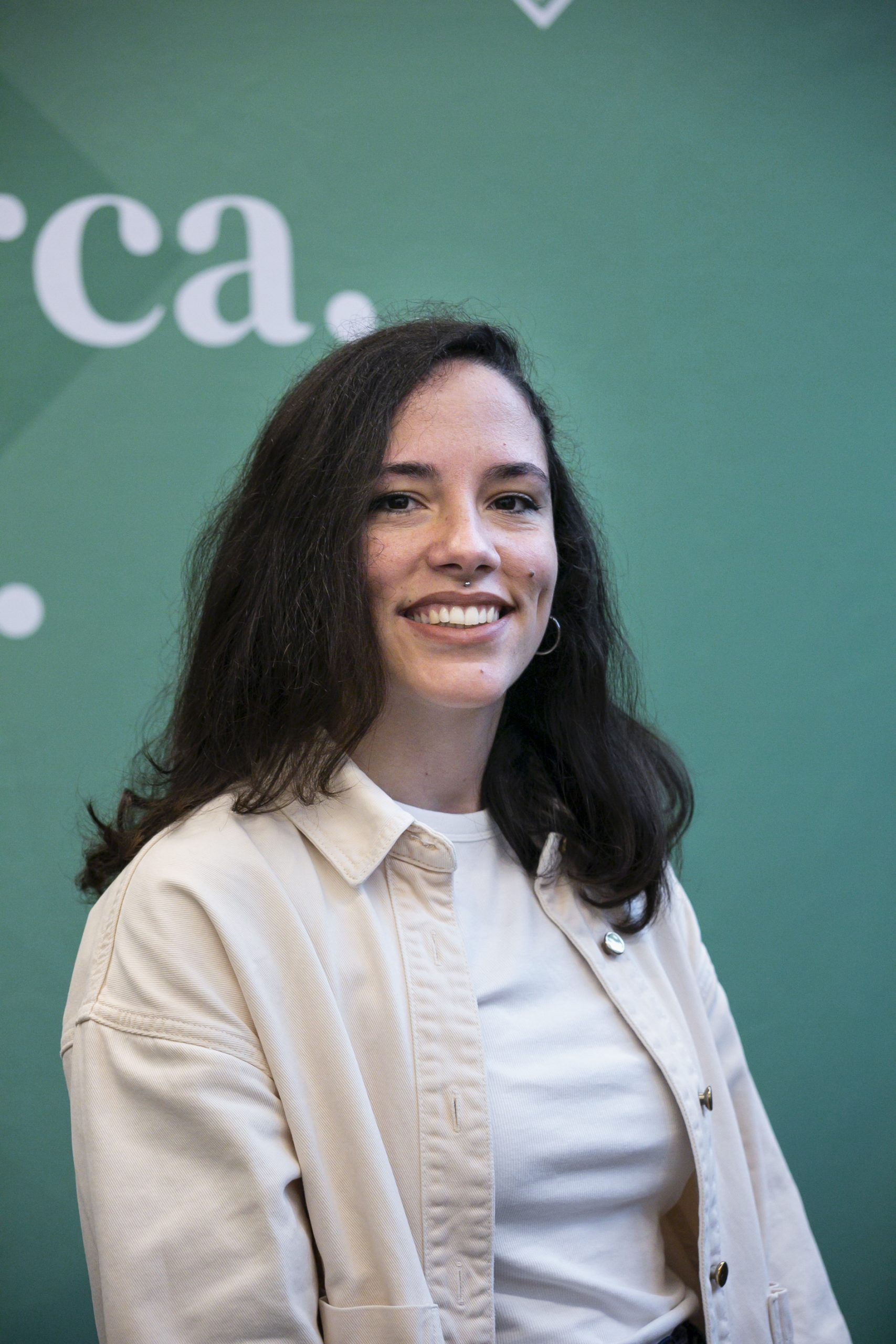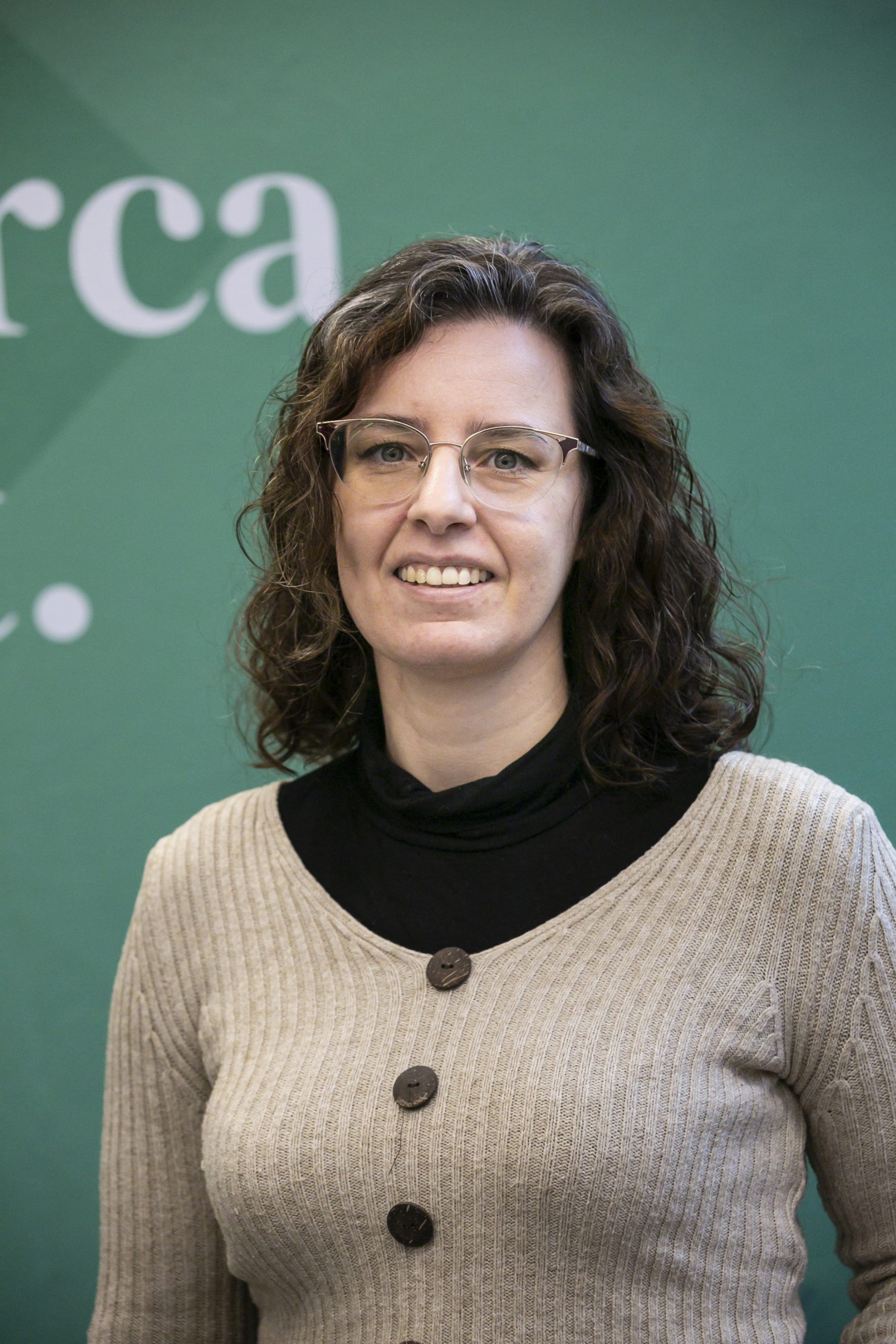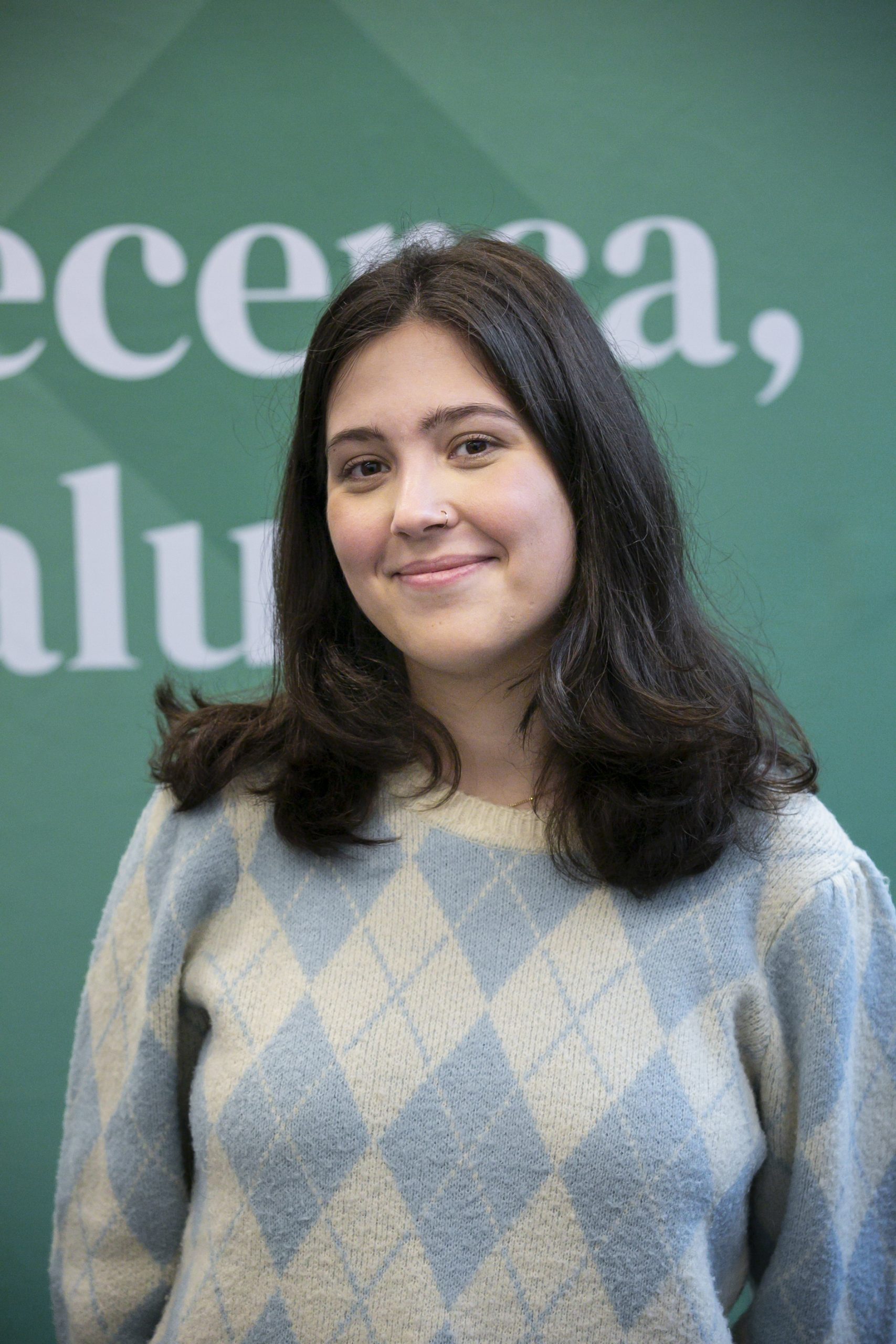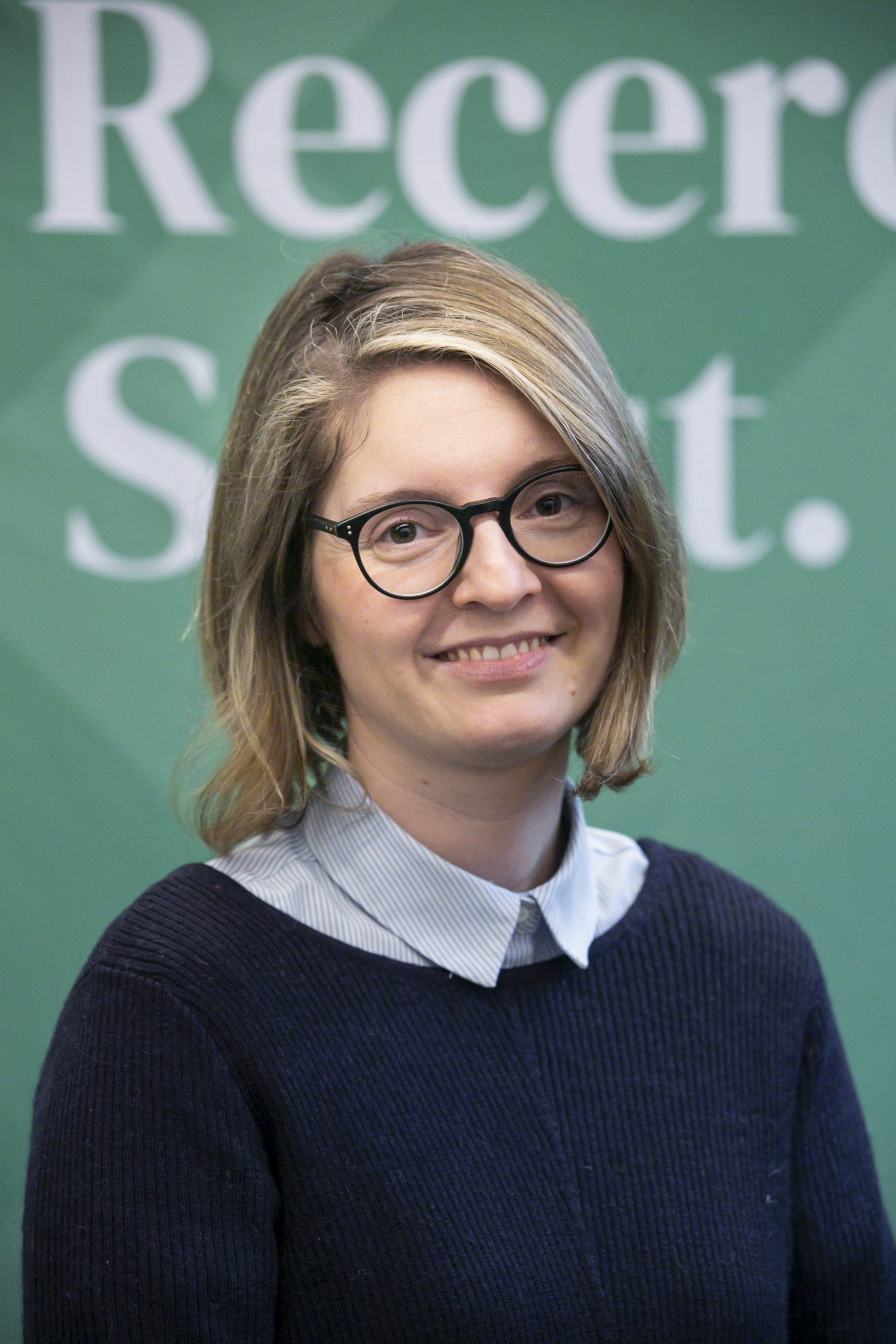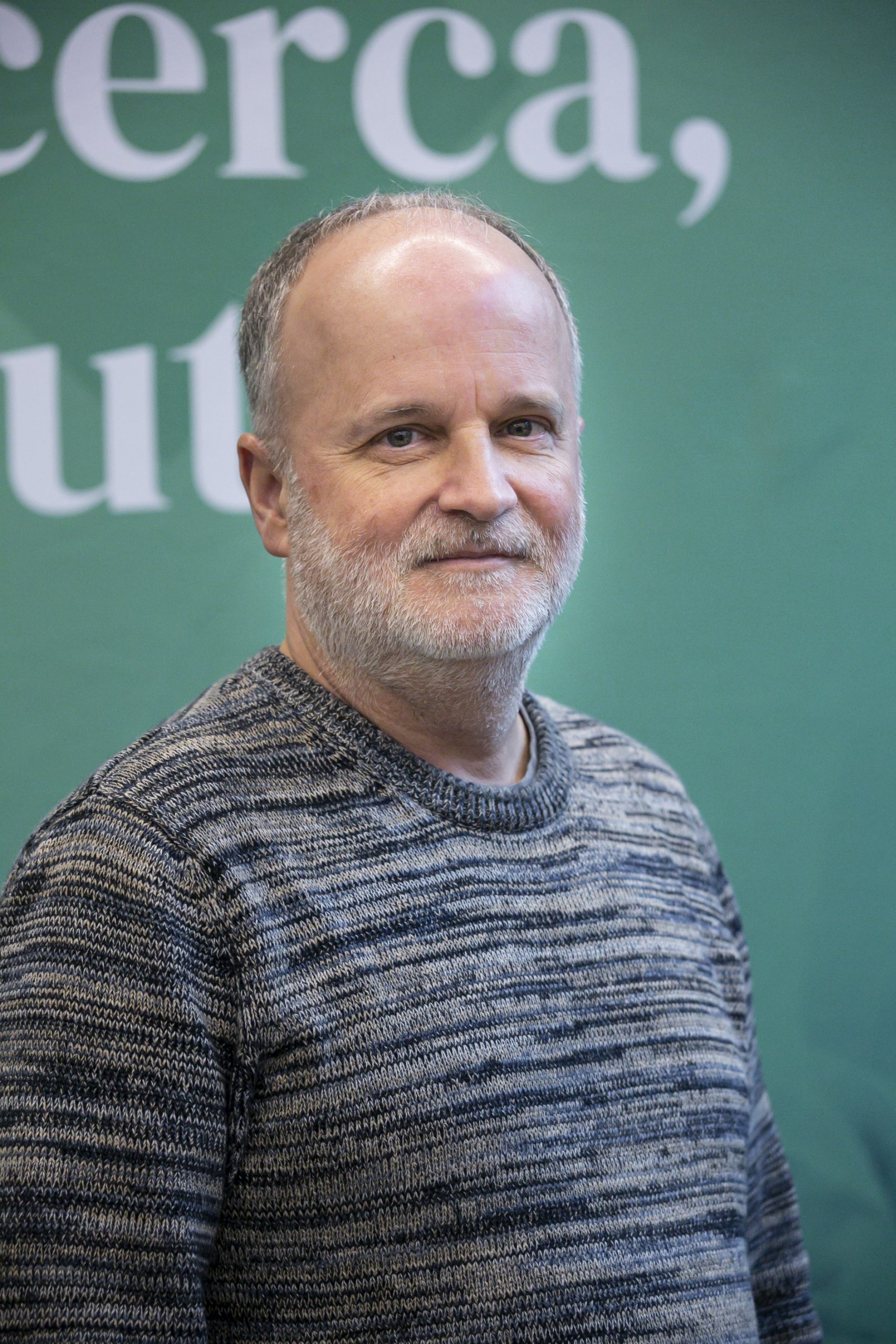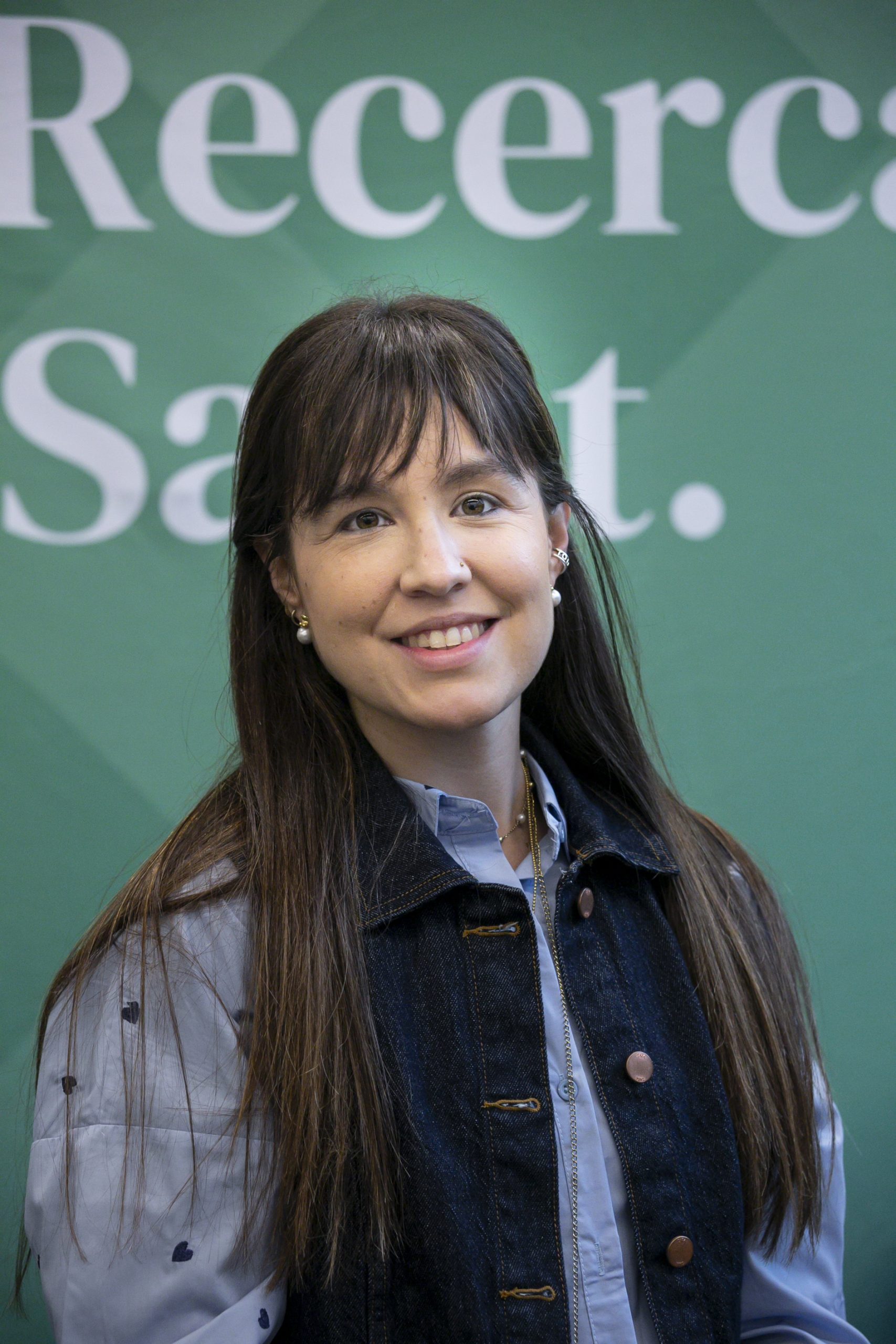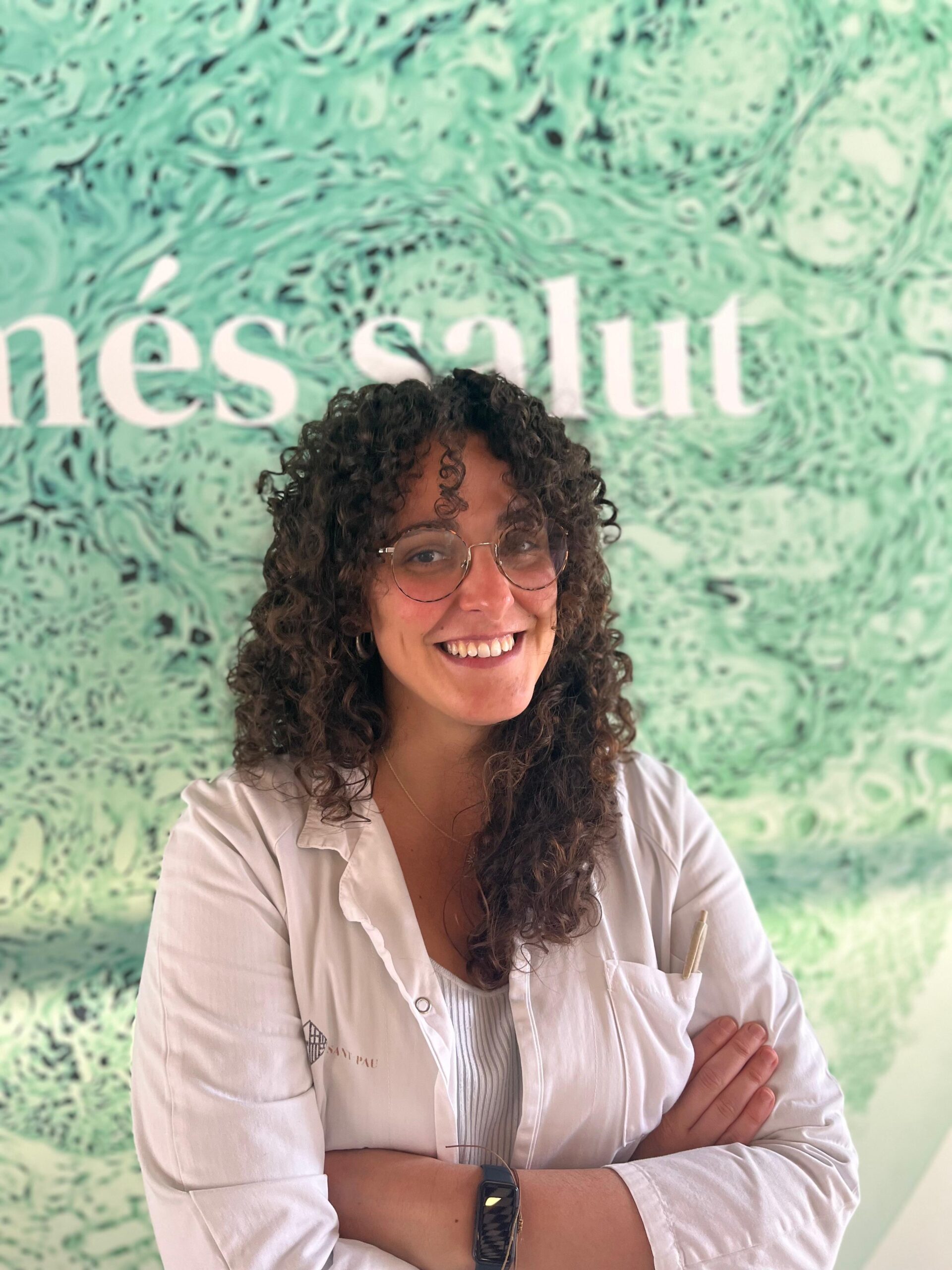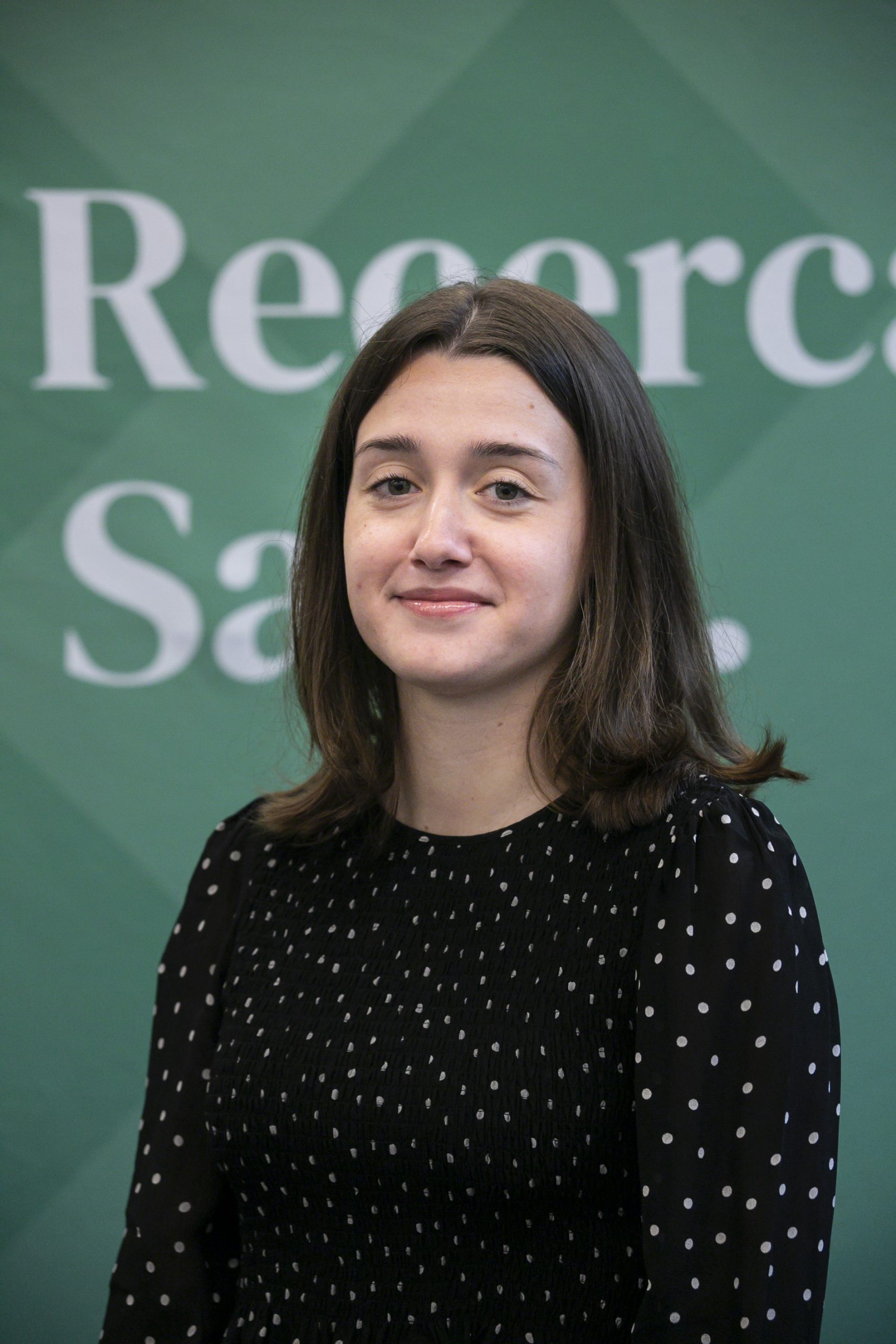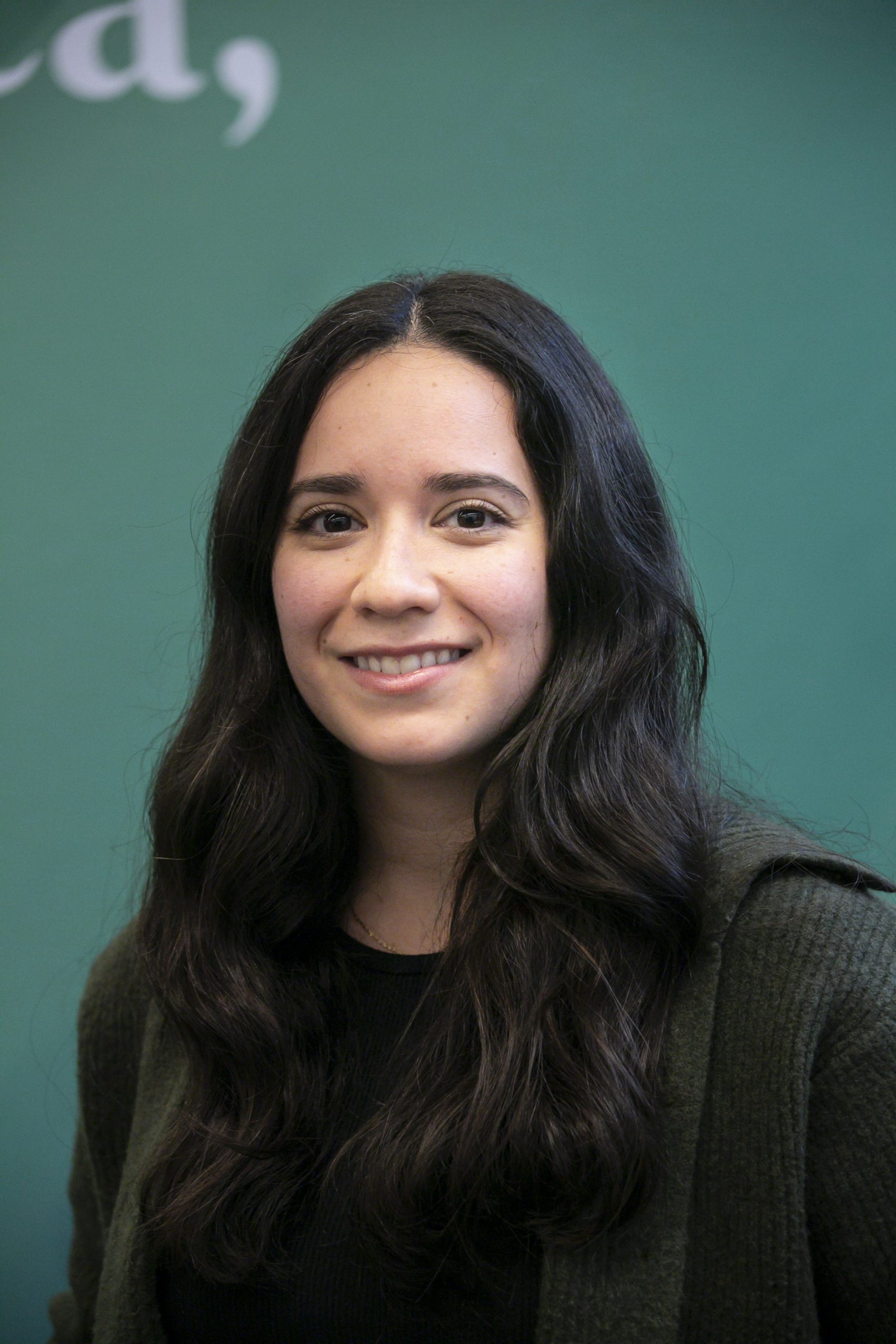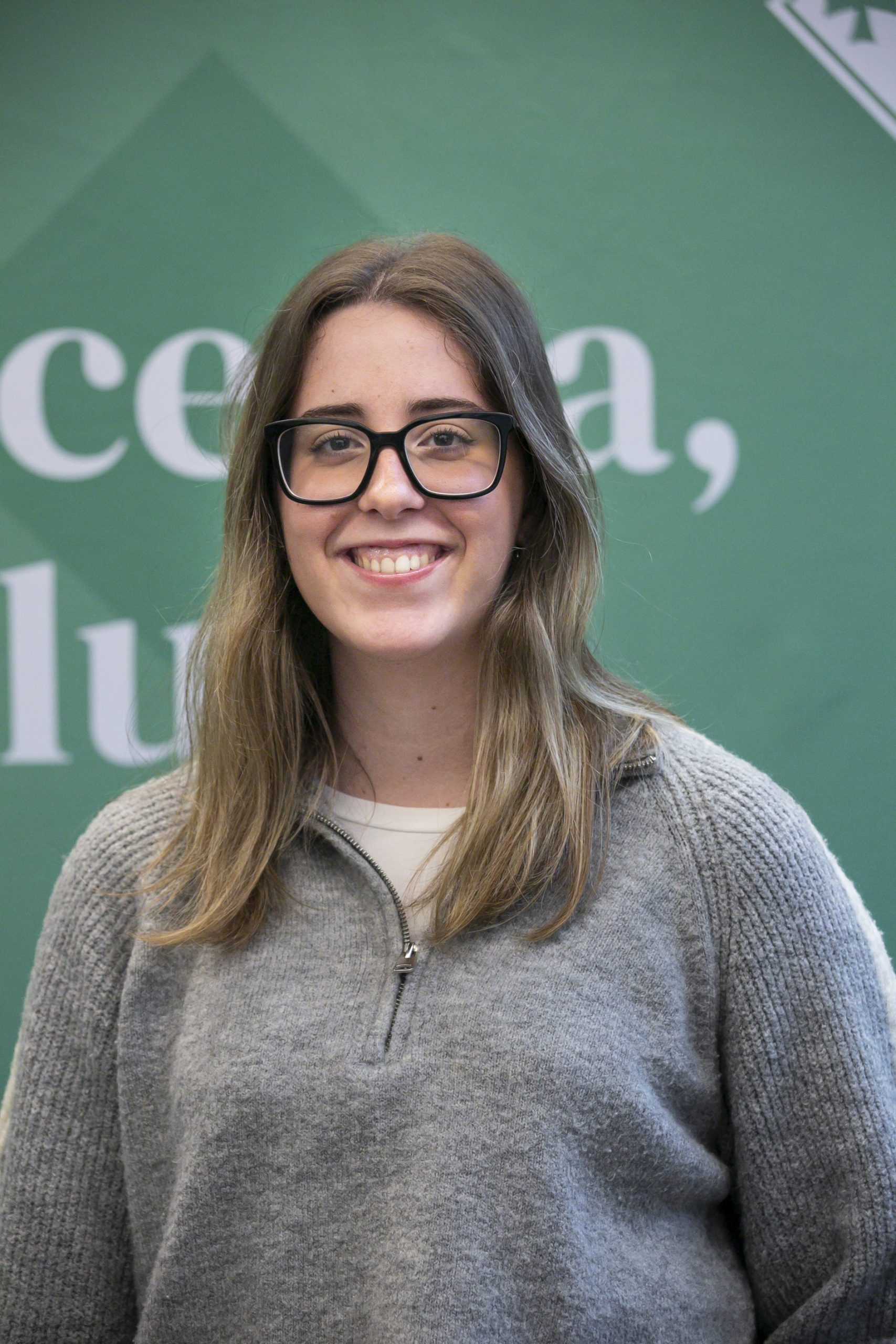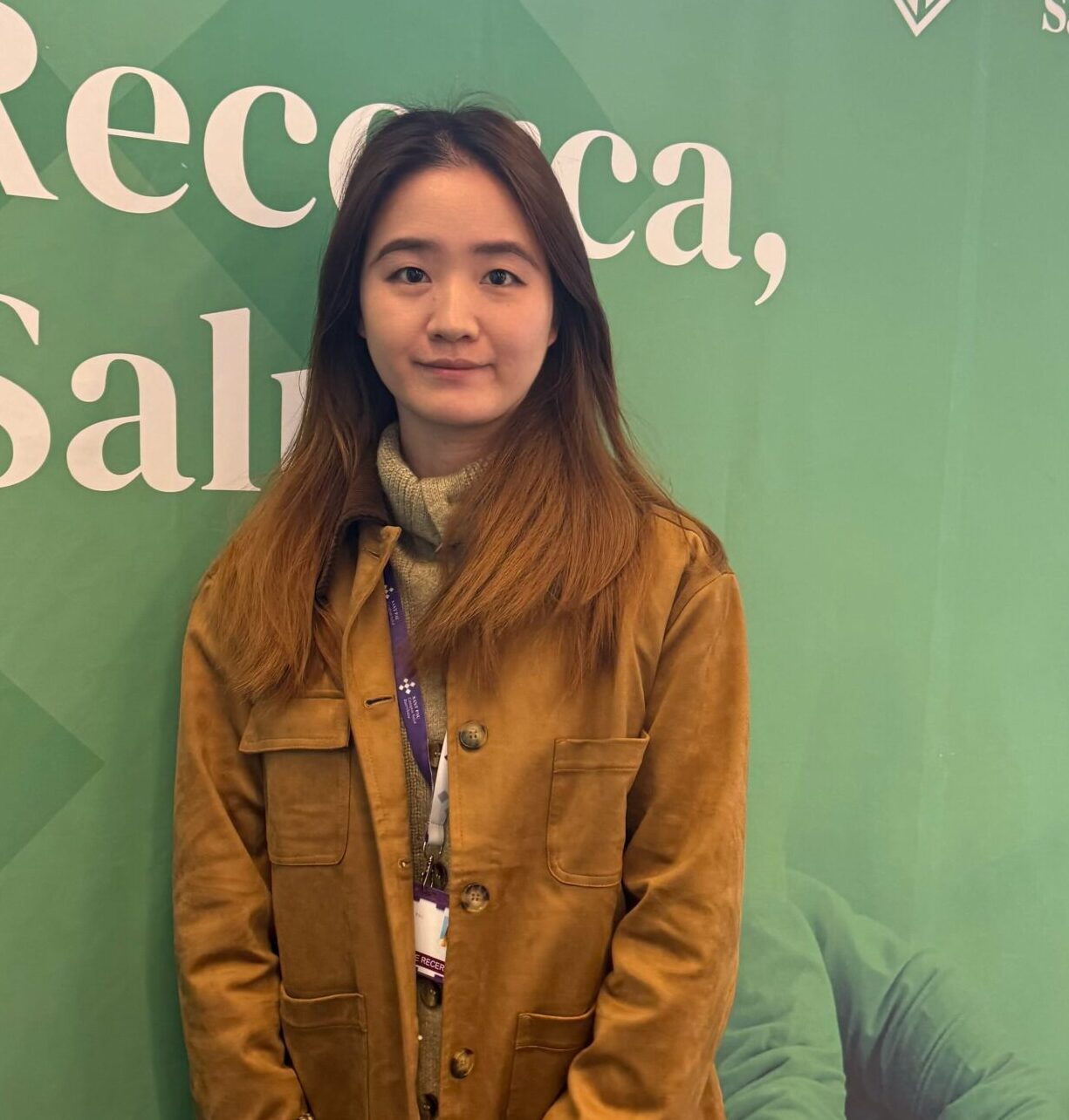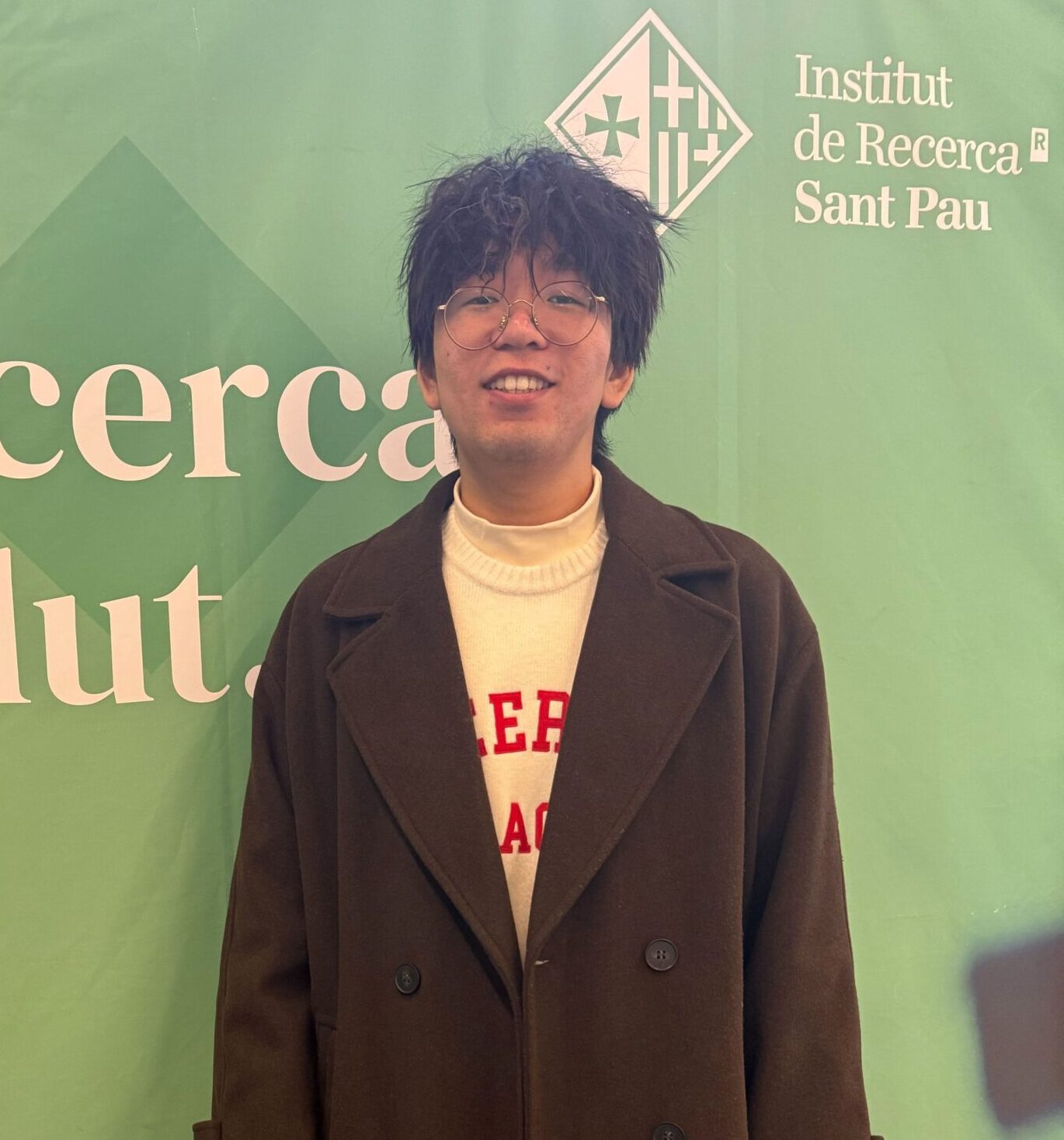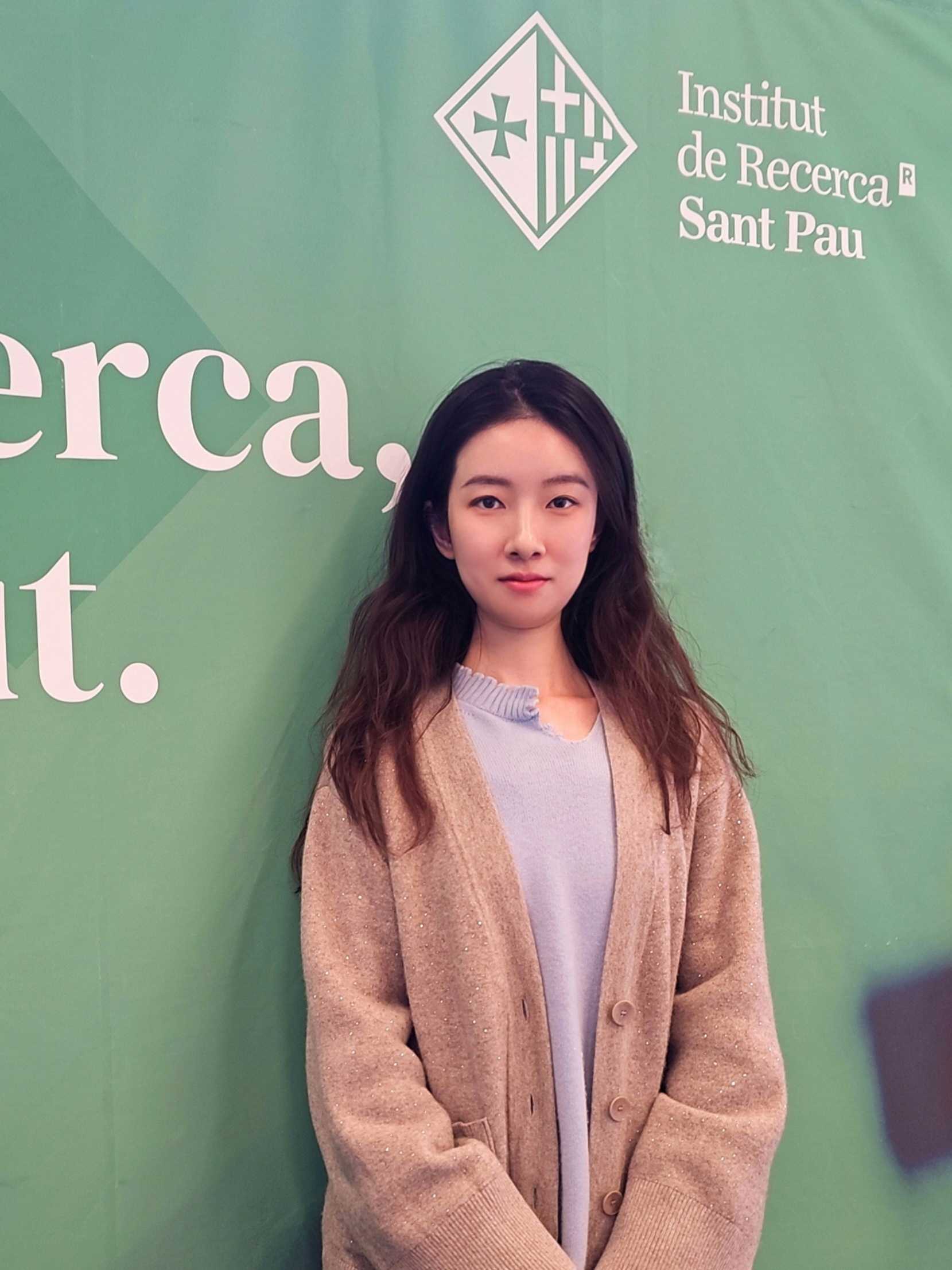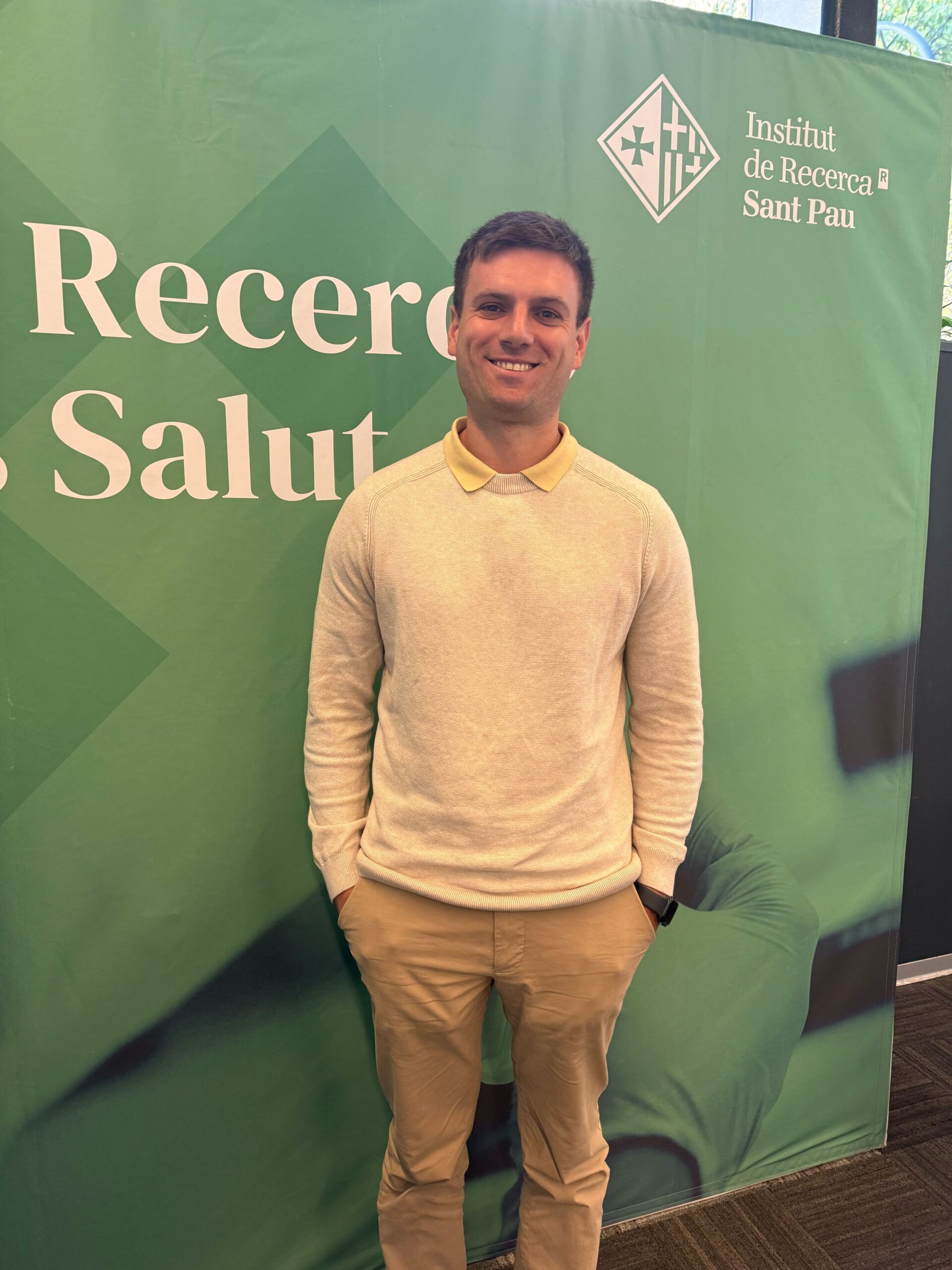IP: Israel Fernández
Israel Fernández Cadenas is a Biologist and Head of the Pharmacogenomics and Genetics Group of the IIB Sant Pau and Sant Pau Hospital. He is the founder and coordinator of the Spanish Stroke Genetics Consortium (www.genestroke.com) and is the current Chair of the International Stroke Genetics Consortium (2021-2023) (ISGC https://www.strokegenetics.org). The ISGC is a consortium focused in the study of troke genetics with more than 200 members and research groups from five continents.
Israel Fernández is the co-Chair of the Acute endophenotypes working group of the ISGC and co-Chair of the Global Alliance of Acute and long term Outcome an initiative of the ISGC to study the genetics of stroke outcomes. He is member of different consortiums as the CADISP, ICPC or the COVID-19 Host Genetics Initiative (https://www.covid19hg.org).
Jara Cárcel
L1: Genetics risk and post-stroke evolution
Jara Cárcel-Márquez is a PhD in Medicine, especialised in Genetics. She defended her thesis entitled “Study of genetic risk factors associated with ischemic stroke” at the beginning of 2023.
During her PhD thesis she performed a research stay in the computer department of Università degli Studi di Milano Statale in which she learnednovel algorithms to analyse genomic data and perform risk scores.
She is currently performing her postdoc stage studying the interaction of the 3D genome and the genetic risk factors associated with short term outcome after stroke.
Cristina Gallego
L2: Epigenetics and biological age
Dr. Cristina Gallego-Fabrega is a postdoctoral researcher leading the Epigenetics and Biological Age research line at the Stroke Pharmacogenomics and Genetics Lab. Her academic background is in Biotechnology with a master in Analysis of OMIC Data. Cristina’s main research resides in deciphering how different DNA methylation profiles relate to complex diseases, with special focus in stroke risk and pharmacological treatment. Cristina is also interested in to leverage bioinformatic tools and computational approaches for the analysis of ‘omic data, to decipher the biological mechanism that contribute to cerebrovascular diseases as well as new computational approaches to exploit already existing ‘omic data using new analytical methodologies.
Cristina is an active member of the Spanish Stroke Genetics Consortium, and the Internattional Stroke Genetics Consortium. In the latter she is a member of the Early Career Researchers working group and the Global Alliance for stroke Outcome. To date, Cristina Gallego has published total of 32 papers, eight of them as first author, three in magazines of the first decile and four in magazines of the first quartile.
Laia Llucià
L3: Pharmacogenomics
Laia is a predoctoral researcher at the Stroke Pharmacogenomics and Genetics Lab. Her primary focus is on cerebrovascular disease research, proteomics and genomics. She is particularly interested in statistics and machine learning approaches.Her academic background is in Biology, with a Master’s in Biological Anthropology specializing in Human Diversity and Biomedical Applications, and a second MSc in Bioinformatics and Biostatistics.She worked for two years as a research technician, investigating genomic variability in immune responses to SARS-CoV-2 infection. In February 2022, she began her PhD in genetics and is currently completing her thesis on proteomics and genomics in isquemic stroke.
Elena Muiño
L4: CADASIL-SVD
Elena Muiño is a specialist in neurology, and had the opportunity to stay at the Lariboisière Hospital in Paris, a reference center for rare cerebrovascular diseases in France where the team identified NOTCH3 as the cause of CADASIL.
She got her a master’s degree in Bioinformatics and Biostatistics at the UOC and is part of the
Pharmacogenomics and neurovascular genetics since 2014.
With the Rio Hortega contract (2019), she is starting a consultation of small vessel disease of genetic origin at the Hospital de la Santa Creu i Sant Pau, where a multidisciplinary team collaborates in the diagnosis, genetic counselling and accompaniment of asymptomatic patients and family members.
Jesús Martín
L6: Lipids and stroke
Jesús M. Martín-Campos has a PhD in Biology, specialized in Genetics, and is a biologist specialized in clinical biochemistry. For more than 20 years he has been working on the definition of the genetic basis of dyslipidemia and the development of laboratory techniques to improve its genetic diagnosis.
For two years he has been developing a project to determine the role of lipids in the risk and prognosis of different types of stroke, the risk of stroke associated with different dyslipidemia, and the possible differential mechanisms with respect to coronary artery disease.
Natalia Cullell
L7: Anticoagulants and Epi-exosomes
Natalia Cullell graduated in Human Biology in 2014 from Pompeu UniversityFabra (Barcelona, Spain). Later, she completed a master’s degree in Pharmaceutical and biotech Industry.
She is currently completing a PhD program in Medicine at the University of Barcelona in the neuroscience Mútua group at the Fundació Docència i Recerca Mútua Terrassa and in collaboration with the pharmacogenomics and neurovascular genetics group at Sant Pau Research Institute under the supervision of Dr. Israel Fernández-Cadenas and Dr. Jerzy Krupinski.
Her main area of study is the genomics, epigenomics and pharmacogenetics of neurovascular diseases, using multi-omics approach. She has recently found a strong DNA methylation pattern associated with stroke risk and has identified for the first time the association of the DNA methylation with the stroke outcome. She has participated in more than 40 scientific publications and she currently has an H-Index of 15. Natalia Cullell actively participates in the Spanish Consortium for the study of the Genetics of Stroke (GENESTROKE) and the International Stroke Genetics Consortium.
Garbiñe Ezcurra
L3: Pharmacogenomics
She obteined her Medicine Degree in 2017 by the Autonomus University of Barcelona (UAB) and became a specialist in neurology with special interest in cerebrovascular diseases. Currently she works as a pre-doctoral researcher integrated into the group, combining medical care as a member of the Stroke Unit of the Hospital de la Santa Creu i Sant Pau and collaborating with the PREVICTUS project, whose objective is to study the genetic, proteomic and clinical factors involved in the complications of reperfusion treatment of ischemic stroke.
Laia Mariné
L2: Epigenetics
She obtained her degree in Biomedical Sciences with special mention in biomedical research in July 2022 at the International University of Catalonia (UIC). One year ater, in July 2023, she completed a Master’s degree in Advanced Genetics at the Autonomous University of Barcelona (UAB).
She joined the Stroke Pharmacogenomics and Genetics Research Group (STROKEMICS) and the International Stroke Genetics Consortium (ISGC) as convener in January 2023. Later, she started her PhD studies in May 2024.
Paula Villatoro
L4: CADASIL-SVD
Paula obtained her Bachelor’s in Biochemistry and Microbiology by University del Valle of Guatemala. In 2022 she obtained her Master´s degree in Therapeutic Targets and Cell Signalling by University of Álcala de Henares, and did her Master’s final thesis in post-stroke neurogenesis and cognitive impairment at CNIC in Madrid, where her interest in neurovascular diseases began and where afterwards she worked as a research support assistant.
She is currently a PhD candidate in Medicine at the group, funded with a predoctoral contract from the Joan Oró grant. Her research focuses on CADASIL, specifically in transcriptomics and proteomics studies for the search for biomarkers and therapeutic targets.
Paula Boldo
L1: Genetics risk and post-stroke evolution
Paula obtained her Bachelor’s degree in Biomedical Sciences with a mention in biomedical research in July 2023 at the International University of Catalonia (UIC). She did her degree practices in the epigenetics research line at the Stroke Pharmacogenomics and Genetics Lab.
She finished a Master’s degree in Omics Data Analysis at Vic’s University (UVic) in 2024. She has now joined the Stroke Pharmacogenomics and Genetics Research Group in the genetic risk factors line to conduct her PhD thesis, thanks to funding from the Gen-X project, supported by the TV3 marathon.
Eric Casellas
Eric has a Bachelor’s degree in Genetics from the Universitat Autònoma de Barcelona, where he did his final project on yeast genome modification for heavy metal bioremediation.
He has worked in a microbiological laboratory for quality control and has carried out an internship as a Transcriptomics Data Analyst for Fragile X Syndrome at Universitat Pompeu Fabra.
Currently, he’s finishing his Master’s degree in Bioinformatics and Biostatistics by the Universitat Oberta de Catalunya, where he’s working in his master’s thesis on Myosin Heavy Chain structure modelling and contractile kinetics analysis. He’s recently joined the Stroke Pharmacogenomics and Genetics Research Group as junior Researcher for Data Entry and Bioinformatics analysis for the OneCareAI Project.
Min Huang
L2: Epigenetics and biological age
Min Huang began her academic journey with a Bachelor’s degree in Clinical Medicine in China. She then went on to complete her Master’s in Clinical Laboratory Diagnostics at Shantou University in 2024, where her research focused on building machine learning models to diagnose cardiovascular diseases. This work solidified her passion for applying computational methods to address complex medical challenges.
Now, as a PhD candidate supported by a prestigious scholarship from the China Scholarship Council (CSC), Min is channeling that passion into stroke research. She leverages machine learning on multi-omics data to pinpoint the most promising therapeutic targets and predictive biomarkers. Her ultimate goal is to help transform how we treat stroke in those critical first hours after onset.
Hairui Wang
L2: Epigenetics and biological age
Hairui holds both a Bachelor’s and a Master’s degree in Science from the China University of Geosciences (Beijing), where he built a solid foundation in mathematical analysis, statistics, programming and numerical methods. During his Master’s studies, he was jointly trained at the Institute of High Energy Physics, Chinese Academy of Sciences, focusing on applying machine learning and bioinformatics approaches to the analysis of complex biomedical and clinical data, and gained extensive experience in multi-omics integration, statistical modeling and scientific programming.He is currently pursuing a PhD in Genetics at the Universitat Autònoma de Barcelona and has joined the Stroke Pharmacogenomics and Genetics Research Group. His work focuses on combining multi-omics analysis with machine learning to identify novel biomarkers and therapeutic targets for ischemic stroke, with the ultimate goal of improving early risk prediction, enabling personalized treatment strategies, and enhancing patient outcomes.
Xinhui Niu
L4: CADASIL-SVD
Xinhui pursued her doctoral studies at the Autonomous University of Barcelona and joined the Stroke Pharmacogenomics and Genetics Research Group in October 2025.She completed her undergraduate and master’s degrees in Biomedical Engineering at Jilin University. During her undergraduate years, she obtained a Bachelor of Science degree by conducting a project on the pharmacodynamics evaluation of high-density lipoprotein nanoparticle drug delivery systems in ovarian cancer stem cells. For her master’s degree, she conducted research on the therapeutic effects of stem cells, focusing on acute lung injury, and received a Master of Medicine degree. During this period, she also participated in Systems Pharmacology and Computer-Aided Drug Design (CADD) Trainings and Single-cell RNA-seq (scRNA-seq) analysis trainings at Trinity College Dublin.
Franco Appiani
L4: CADASIL-SVD
Franco Appiani is a neurologist specializing in cerebrovascular diseases. He trained at Hospital Universitario Fundación Favaloro (Argentina) and has held clinical and academic roles at INECO (Argentina), ACE Alzheimer Center (Barcelona), and Hospital CIMA Sanitas (Barcelona). His research focuses on small vessel disease and cognitive impairment, with a particular interest in CADASIL and Cerebral Amyloid Angiopathy. Currently based in Barcelona, he combines strong clinical experience with research while pursuing a Master’s in Artificial Intelligence and Big Data in Health at the Universitat Autònoma de Barcelona (UAB). He is an active member of the European Stroke Organization (ESO) and the European Academy of Neurology (EAN), and has authored multiple peer-reviewed publications in cerebrovascular disease, neuroimmunology, and neurodegeneration. He has recently joined the Stroke Pharmacogenomics and Genetics Research Group (STROKEMICS) at the Hospital de la Santa Creu i Sant Pau with a Río Hortega contract, where he is going to conduct his PhD and participate in a multidisciplinar specialized clinic for genetic and sporadic small vessel diseases.

